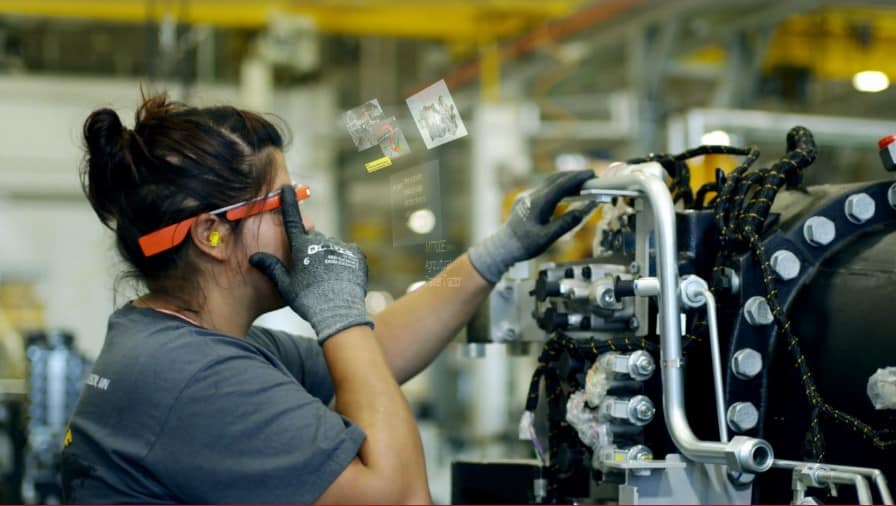
From AR/VR to Metaverse
Kelly Peng Sees Smart Glasses in Your Future
Training Future Engineers in the Semiconductor Metaverse
Google Glass May be Half-Full
Revealing AR's Unintended Consequences on the Factory Floor
Startups Seek to Crash the Metaverse Party
Metaverse, Omniverse--How Versed Can We Get?
Kelly Peng Sees Smart Glasses in Your Future

By Rebecca Day
What’s at stake:
While augmented-reality smart glasses have found adopters in industry, thus far consumers have largely failed to see the appeal. Kura Technologies asserts that its Gallium glasses overcome the performance, comfort and privacy hurdles that earlier entries failed to clear, and it is confident that the expanding metaverse will enable applications that will convince the public of smart glasses’ utility. Whether consumers will find smart glasses as indispensable as they now view their phones by the end of the decade, as Kura’s CEO predicts, remains to be seen. But they will get an early glimpse of the Gallium glasses in limited public demonstrations over the next couple of years.
Training Future Engineers in the Semiconductor Metaverse

What’s at stake:
New U.S. fabs will generate tens of thousands of jobs. The outsourcing of chip manufacturing and the decline in engineering graduates mean many can’t be filled by qualified candidates. Proponents of the virtual factory scheme claim they can attract newcomers to the profession by training them on extended-reality tools.
Google Glass May be Half-Full

By Rebecca Day
I assume one day I’ll own smart glasses, though I can’t for the life of me understand why I’d want to today. That’s often how it works with me and tech. Unlike HDTV — which I craved after I first saw eyepopping jockey silk colors in an ABC-TV demo reel — new product categories often take time for me to adjust to. I’m not a tech-for-tech’s sake kind of gal. I need to see a compelling reason buy into the next big thing – and for the price to come down.
Revealing AR's Unintended Consequences on the Factory Floor

By Junko Yoshida
What’s at stake?
The novelty of AR and/or VR goggles tempts corporations to embrace the technology to bolster worker productivity. What many companies overlook is that short-term productivity gains achieved through technology may come at the cost of workers’ long-term ability to innovate.
Surely, technology can improve worker efficiency in manufacturing – it always has. This truism helps explain why so many corporations are eyeing the new tools of augmented reality and virtual reality (AR and VR) as the next big thing to streamline and improve their production lines. But equally significant is the impact of a given technology on human behavior.
Startups Seek to Crash the Metaverse Party

By Peter Clarke
What’s at stake:
An intriguing array of young companies fall into two general camps: those working at the human-machine interface and those providing the communications needed to handle the massive volumes of data that virtual reality will generate.
Metaverse, Omniverse--How Versed Can We Get?

By Jon Peddie
Anyone who has read anything about the metaverse probably knows Neal Stephenson coined the term in Snow Crash in 1992. William Gibson wrote about a similar place he called Cyberspace in 1984, and the idea of an alternate digital reality has been a staple of science fiction ever since. This generation’s version was described by Ernest Cline’s 2011 book Ready Player One and the eponymous film that followed.
